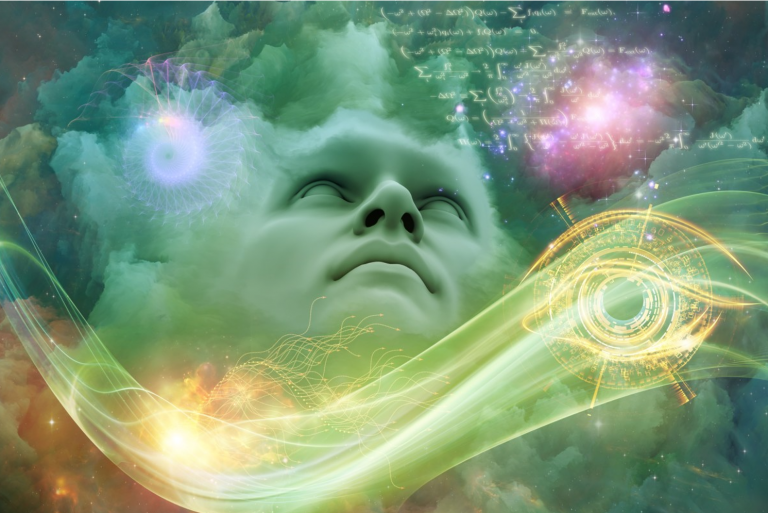Contents
In this current Psychedelic Renaissance, many Psychedelic researchers have spent the last decade understanding the subjective effects of Psychedelic substances and trying to point out what it is about the Psychedelic experience that brings beneficial therapeutic outcomes? Years after years of studies on Psychedelic substances and experiences revolutionized the present psychopharmacology field and changed the way we understood mental diseases and how we treated them.
Our ancient ancestors have been consuming naturally occurring Psychoactive Holy Plant-based Medicines for many millennia. Their ritualistic cultural and spiritual consumption of Holy Plants was primarily centred around the subjective effects they experienced. From historical records now it is confirmed that they consumed Psychoactive Holy Plant-based Holy Medicines to tap into the altered state of consciousness, which is entirely a subjective experience. And according to their perspective, tapping into this state is important to start the healing process.
But latest repeated scientific studies keep revealing the clinical applications with proven benefits of these Psychedelic compounds. A recent discovery of a synthetic Psychedelic compound, which is structurally similar to the classic Psychedelic substance Ibogaine, provides all the clinical benefits of the substance without the hallucinogenic subjective effects, raises the question – “are the subjective experiences essential to their therapeutic properties?”
From recent observation, it is likely that the availability of these therapies would increase if the subjective effects were not required to treat addiction, depression, and anxiety. Two prominent researchers of the present time in Psychedelic Science, Dr Roland Griffiths and Dr David Olson, are currently debating if the therapeutic benefits offered by Psychedelic compounds are dependent on their subjective effects.
What are the Subjective Effects of Psychedelic substances?
The subjective effects of Psychedelics are significantly complex, far-reaching, and highly dependent on the dose and type of Psychedelic individuals consume. For Psilocybin-assisted psychotherapy, individuals will usually undergo a high dose session under the close supervision of a psychiatrist. In this session, the subjective effects an individual experiences can vary wildly from person to person—from observation, some of the common effects are—experiencing blissfulness and relaxing calmness throughout the session, while others may experience more transiently and tensed anxiety.
The importance of acute subjective effects in therapeutic outcomes has also been documented in qualitative interview studies of patients treated with Psychedelic substances in contemporary settings. There is a great deal of historical, anecdotal, and qualitative data supporting the value of the subjective effects of Psychedelic substances. The meaning and significance attributed to Psychedelic experiences have been well established in laboratory settings. Psilocybin administration studies have repeatedly shown that participants frequently rate their Psychedelic experiences as among the most meaningful of their entire lives.
How does the subjective effect of Psychedelics assist in therapy?
Even with modern technologies, it is still objectively not possible to measure the subjective effects of Psychedelic experiences. However, there are some major components which contribute to reductions in depression and anxiety when patients are administered a Psychedelic substance in a therapeutic setting.
David B. Yaden and Roland R. Griffiths of the Department of Psychiatry and Behavioral Sciences, Johns Hopkins University School of Medicine, demonstrated in their research that patients often undergo a mystical-type experience in high dose Psychedelic sessions. These experiences are often characterized by a sense of joy, unity with everything and everyone, interconnectedness, and sometimes a dissolution of the sense of self, space and time. According to their observation, if the doses of Psychedelic substance is increased, these mystical-type experiences become more intense. However, they noted that the intensity of these experiences highly varies from person to person.
According to Yaden and Griffiths, these mystical-type experiences are significantly connected with therapeutic outcomes in Psychedelic-Assisted Psychotherapy. For example, in another research, while treating smoking addiction with Psilocybin, Griffiths, with his research team, observed that the more intense the mystical-type experience, the larger the reductions in smoking craving was. Previous research also observed that more intense mystical-type experiences were significantly associated with a greater reduction in anxiety and depression. Yaden and Griffiths argue that these meaningful experiences, such as the mystical-type elements, may act as the psychological catalyst which allows patients to disengage with maladaptive patterns of thoughts, feelings, and behaviours.
Do the changes in the brain mean changes in mind?
With all the research and surveyed data, subjective experiences which orchestrate a meaningful Psychedelic experience are undoubtedly powerful. But not everyone is capable of experiencing the intensity of Psychedelic experience. David E. Olson of the Department of Chemistry, University of California, argued in one of his researches that these experiences may not be the key element in Psychedelic-Assisted Psychotherapy. In his rebuttal paper, Olson acknowledges that mystical-type experiences are only related to positive changes in mental health. And he pointed out that many patients treated with Psychedelic-Assisted Psychotherapy who did not experience the full mystical-type experience still found the treatment to be helpful and beneficial, while on the other hand, patients who had full mystical experiences did not necessarily experience a substantial reduction in symptoms.
According to Olson, Psychedelic compounds are Psychoplastogens, with the capacity to engage in neural plasticity mechanisms in the human brain and therefore rewire neural circuitry. He claimed that the relevant pharmacological feature of Psychedelic substances is their Psychoplastogenic capacity. He further explained that the antidepressant response of Ketamine increases for several days following treatment despite the subjective effects vanishing after few hours. This is due to the fact that Psychoplastogens only require a short stimulation period which is less than an hour, to initiate a neuronal growth response that can last for several days.
This year, Olson’s lab also synthesized a novel compound structurally similar to the classic Psychedelic substance Ibogaine, which they call ‘Tabernanthalog’ (TBG). This novel Psychedelic compound does not induce intense subjective effects but still strongly promotes new brain cells’ growth. This is the first of its kind, paving the way for a new breed of Psychedelic substances, where these substances can significantly affect the brain without inducing a long Psychedelic experience. However, it must be noted that this novel compound is still under experiment and has never been conducted with humans.
Olson pointed out that if these new compounds are indeed non-hallucinogenic but exercise major changes in the brain, then their applicability may be possible to be scaled up. That would mean more people could access Psychedelic Medicines without requiring the supervision of multiple therapists.
The question remains, are subjective effects necessary for achieving ‘healing’ with Psychedelic-Assisted Psychotherapy?
Conclusion
Olson’s work is compelling, but since the experiments have not been conducted with humans, it is not possible to tell whether or not there are subjective effects of this novel Psychedelic compound. On the other hand, it is also impossible to separate Psychedelic substances’ subjective effects from their neuroplastic effects. Perhaps the people who experience stronger mystical-type experiences also undergo more radical changes in the brain chemistry during a Psychedelic experience? To answer questions like this, much more research is needed. While Olson’s proposition to scale the application of Psychedelic substances sounds important, Yaden feels that the subjective effects are too powerful to ignore.
References
- Cameron, L.P., Tombari, R.J., Lu, J. et al. (2021). A non-hallucinogenic Psychedelic analogue with therapeutic potential. Nature, [online] Volume, 589, p. 474–479. Available at: https://doi.org/10.1038/s41586-020-3008-z [Accessed 19th August 2021].
- Griffiths, R. R., et al. (2014). Psilocybin-Occasioned Mystical Experiences in the Treatment of Tobacco Addiction. Bentham Science Publishers, [online] Volume, 7(3), p. 157-164. Available at: https://www.ingentaconnect.com/contentone/ben/cdar/2014/00000007/00000003/art00005?crawler=true&casa_token=Q61z4AztenoAAAAA:ji6hn5yIGK8iOxEbqVT6VdkE5ZIjSCxEOzQCrqyso2JwI6Z2sQllx0cctg-l_y_n0Z9VmLN3332HnwnJop4E [Accessed 19th August 2021].
- Olson, D. E. (2020). The Subjective Effects of Psychedelics May Not Be Necessary for Their Enduring Therapeutic Effects. ACS Pharmacol. Transl, [online] Volume, 4(2), p. 563–567. Available at: https://doi.org/10.1021/acsptsci.0c00192 [Accessed 19th August 2021].
- Yaden, B. D. & Griffiths, R. R. (2020). The Subjective Effects of Psychedelics Are Necessary for Their Enduring Therapeutic Effects. ACS Pharmacol. Transl, [online] Volume, 4(2), p. 568–572. Available at: https://doi.org/10.1021/acsptsci.0c00194 [Accessed 19th August 2021].


